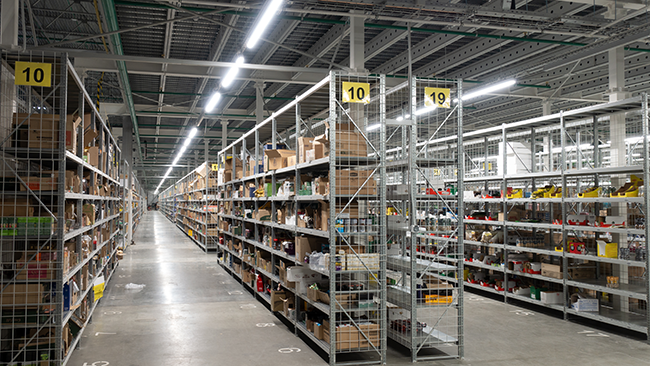Dark Store: The new trend in logistics
We live in a world which speed plays an increasingly important role. Our need to get what we want when we want it has forced the industry to adjust, even reinvent itself, to service the new consumer trend.
The concepts that have emerged in recent years to achieve faster and faster product deliveries are multiple and diverse. Crowdshipping has reduced the cost of shipping and streamlined it, with a group of people in a related area decreasing costs. Services like Rappi and UberEats have revolutionized the world of delivery, primarily food, allowing restaurants to serve customers in the comfort of their home, restaurants that under other circumstances would not be willing or able to pay for a fleet of delivery men. The Click and Collect and the Pickup have allowed the user to waste no time in the stores and has freed up space within the shops, something particularly important in this pandemic "New Normality".
However, perhaps the elements that have most expedited deliveries and brought us closer to the final objective, which is to turn each city into a "Smart City", is the creation and adoption of the Dark Store. Let's learn more about what this implementation represents in today's world and why it is here to stay.
In practical terms, the Dark Store works as a mini Hub in which you can have products, previously packaged and selected for shipping, they can also work based on a consumer purchase prediction, so that seconds after a client paid for them on an Internet portal, they can be dispatched. It works as a warehouse that has no customers inside, everything is 100% operational to satisfy the order.
Some of the main features of the Dark Store are the following:
- It is not designed to have contact with the buyer or end customer, so its development is 100% operational.
- It is created exclusively for the supply of online purchases.
- It can be located in strategic urban points, so logistics costs, such as picking per unit and last mile, decrease considerably.
- It has been created to satisfy the promise of sale and achieve delivery within the hour range.
- Companies can rely on as many Dark Stores as their logistics strategy warrants, typically in denser geographic areas.
- They are located in high-density urban areas.
- They are open 365 days a year and can function without conflict 24 hours a day.
- Crowdshipping is the main method of delivery.
- Since they are not open to the public, there is no competition for the visibility of the product, since there are no competition tactics, which optimizes the operation since the products are arranged according to picking efficiency.
- The Dark Store is also known as a “hybrid store” when it is installed in one of the warehouses of the physical store.
- They work hand in hand and each one has a different objective in its operation.
Each Dark Store works as automated as the operation demands, there are some quite technified with Micro-Fulfillment solutions. It is worth mentioning that another important factor to have technology within the Dark Store is the volume of online sales derived from the pandemic, a situation that has caused a limitation due to the lack of qualified manpower necessary for operational tasks.
A Dark Store can even be a space previously used as a store, for example: in the United States due to quarantine, many companies such as Whole Foods, Kroger and Bed Bath and Beyond, turned their premises into Dark Stores, in order to supply the growing demand online.
Dark Store, a trend that is leading us to become Smart City:
The longings to fulfill the promise of immediacy that most brands make to their customers has an unprecedented environmental impact, because each time a person orders an item and the brand works to deliver it, hundreds of gears move that negatively impact the ecosystem; for example, CO2 emissions increase, vehicular traffic increases and with it environmental, visual and hearing pollution.
If our focus is on being a Smart City that knows how to use information technology to improve the quality of life of citizens in terms of sustainability and habituality, it is essential to take action and approach mechanisms that give us this competitive advantage, the Dark Store is part of this global trend and a sustainable solution for the last mile.
The Dark Store is not a temporary solution, on the contrary, it is here to stay, and we have to adapt and evolve. The only way to stay competitive, profitable, and true to our promise of customer immediacy is by adding implementations that connect us in a timely manner with our customers.
Source: CONALOG









